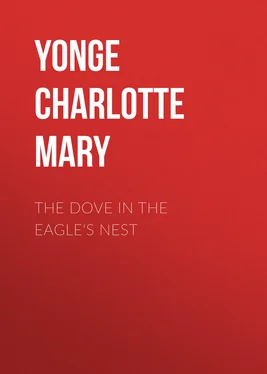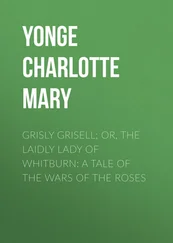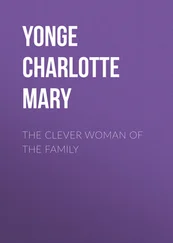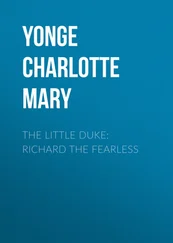Charlotte Yonge - The Dove in the Eagle's Nest
Здесь есть возможность читать онлайн «Charlotte Yonge - The Dove in the Eagle's Nest» — ознакомительный отрывок электронной книги совершенно бесплатно, а после прочтения отрывка купить полную версию. В некоторых случаях можно слушать аудио, скачать через торрент в формате fb2 и присутствует краткое содержание. Издательство: Иностранный паблик, Жанр: Альтернативная история, foreign_antique, foreign_prose, Исторические приключения, на английском языке. Описание произведения, (предисловие) а так же отзывы посетителей доступны на портале библиотеки ЛибКат.
- Название:The Dove in the Eagle's Nest
- Автор:
- Издательство:Иностранный паблик
- Жанр:
- Год:неизвестен
- ISBN:нет данных
- Рейтинг книги:3 / 5. Голосов: 1
-
Избранное:Добавить в избранное
- Отзывы:
-
Ваша оценка:
- 60
- 1
- 2
- 3
- 4
- 5
The Dove in the Eagle's Nest: краткое содержание, описание и аннотация
Предлагаем к чтению аннотацию, описание, краткое содержание или предисловие (зависит от того, что написал сам автор книги «The Dove in the Eagle's Nest»). Если вы не нашли необходимую информацию о книге — напишите в комментариях, мы постараемся отыскать её.
The Dove in the Eagle's Nest — читать онлайн ознакомительный отрывок
Ниже представлен текст книги, разбитый по страницам. Система сохранения места последней прочитанной страницы, позволяет с удобством читать онлайн бесплатно книгу «The Dove in the Eagle's Nest», без необходимости каждый раз заново искать на чём Вы остановились. Поставьте закладку, и сможете в любой момент перейти на страницу, на которой закончили чтение.
Интервал:
Закладка:
There was almost a fear mingled with his reverence. If he had been more familiar with the saints, he would thus have regarded the holy virgin martyrs, nay, even Our Lady herself; and he durst not push her so hard as to offend her, and excite the anger or the grief that he alike dreaded. He was wretched and forlorn without the resources he had found in his sister’s room; the new and better cravings of his higher nature had been excited only to remain unsupplied and disappointed; and the affectionate heart in the freshness of its sorrow yearned for the comfort that such conversation had supplied: but the impression that had been made on him was still such, that he knew that to use rough means of pressing his wishes would no more lead to his real gratification than it would to appropriate a snow-bell by crushing it in his gauntlet.
And it was on feeble little Christina, yielding in heart, though not in will, that it depended to preserve this reverence, and return unscathed from this castle, more perilous now than ever.
CHAPTER VI
THE BLESSED FRIEDMUND’S WAKE
Midsummer-Day arrived, and the village of Adlerstein presented a most unusual spectacle. The wake was the occasion of a grand fair for all the mountain-side, and it was an understood thing that the Barons, instead of molesting the pedlars, merchants, and others who attended it, contented themselves with demanding a toll from every one who passed the Kohler’s hut on the one side, or the Gemsbock’s Pass on the other; and this toll, being the only coin by which they came honestly in the course of the year, was regarded as a certainty and highly valued. Moreover, it was the only time that any purchases could be made, and the flotsam of the ford did not always include all even of the few requirements of the inmates of the castle; it was the only holiday, sacred or secular, that ever gladdened the Eagle’s Rock.
So all the inmates of the castle prepared to enjoy themselves, except the heads of the house. The Freiherr had never been at one of these wakes since the first after he was excommunicated, when he had stalked round to show his indifference to the sentence; and the Freiherrinn snarled out such sentences of disdain towards the concourse, that it might be supposed that she hated the sight of her kind; but Ursel had all the household purchases to make, and the kitchen underlings were to take turns to go and come, as indeed were the men-at-arms, who were set to watch the toll-bars.
Christina had packed up a small bundle, for the chance of being unable to return to the castle without missing her escort, though she hoped that the fair might last two days, and that she should thus be enabled to return and bring away the rest of her property. She was more and more resolved on going, but her heart was less and less inclined to departure. And bitter had been her weeping through all the early light hours of the long morning—weeping that she tried to think was all for Ermentrude; and all, amid prayers she could scarce trust herself to offer, that the generous, kindly nature might yet work free of these evil surroundings, and fulfil the sister’s dying wish, she should never see it; but, when she should hear that the Debateable Ford was the Friendly Ford, then would she know that it was the doing of the Good Baron Ebbo. Could she venture on telling him so? Or were it not better that there were no farewell? And she wept again that he should think her ungrateful. She could not persuade herself to release the doves, but committed the charge to Ursel to let them go in case she should not return.
So tear-stained was her face, that, ashamed that it should be seen, she wrapped it closely in her hood and veil when she came down and joined her father. The whole scene swam in tears before her eyes when she saw the whole green slope from the chapel covered with tents and booths, and swarming with pedlars and mountaineers in their picturesque dresses. Women and girls were exchanging the yarn of their winter’s spinning for bright handkerchiefs; men drove sheep, goats, or pigs to barter for knives, spades, or weapons; others were gazing at simple shows—a dancing bear or ape—or clustering round a Minnesinger; many even then congregating in booths for the sale of beer. Further up, on the flat space of sward above the chapel, were some lay brothers, arranging for the representation of a mystery—a kind of entertainment which Germany owed to the English who came to the Council of Constance, and which the monks of St. Ruprecht’s hoped might infuse some religious notions into the wild, ignorant mountaineers.
First however Christina gladly entered the church. Crowded though it were, it was calmer than the busy scene without. Faded old tapestry was decking its walls, representing apparently some subject entirely alien to St. John or the blessed hermit; Christina rather thought it was Mars and Venus, but that was all the same to every one else. And there was a terrible figure of St. John, painted life-like, with a real hair-cloth round his loins, just opposite to her, on the step of the Altar; also poor Friedmund’s bones, dressed up in a new serge amice and hood; the stone from Nicæa was in a gilded box, ready in due time to be kissed; and a preaching friar (not one of the monks of St. Ruprecht’s) was in the midst of a sermon, telling how St. John presided at the Council of Nicæa till the Emperor Maximius cut off his head at the instance of Herodius—full justice being done to the dancing—and that the blood was sprinkled on this very stone, whereupon our Holy Father the Pope decreed that whoever would kiss the said stone, and repeat the Credo five times afterwards, should be capable of receiving an indulgence for 500 years: which indulgence must however be purchased at the rate of six groschen, to be bestowed in alms at Rome. And this inestimable benefit he, poor Friar Peter, had come from his brotherhood of St. Francis at Offingen solely to dispense to the poor mountaineers.
It was disappointing to find this profane mummery going on instead of the holy services to which Christina had looked forward for strength and comfort; she was far too well instructed not to be scandalized at the profane deception which was ripening fast for Luther, only thirty years later; and, when the stone was held up by the friar in one hand, the printed briefs of indulgence in the other, she shrunk back. Her father however said, “Wilt have one, child? Five hundred years is no bad bargain.”
“My uncle has small trust in indulgences,” she whispered.
“All lies, of course,” quoth Hugh; “yet they’ve the Pope’s seal, and I have more than half a mind to get one. Five hundred years is no joke, and I am sure of purgatory, since I bought this medal at the Holy House of Loretto.”
And he went forward, and invested six groschen in one of the papers, the most religious action poor Christina had ever seen him perform. Other purchasers came forward—several, of the castle knappen , and a few peasant women who offered yarn or cheeses as equivalents for money, but were told with some insolence to go and sell their goods, and bring the coin.
After a time, the friar, finding his traffic slack, thought fit to remove, with his two lay assistants, outside the chapel, and try the effects of an out-of-door sermon. Hugh Sorel, who had been hitherto rather diverted by the man’s gestures and persuasions, now decided on going out into the fair in quest of an escort for his daughter, but as she saw Father Norbert and another monk ascending from the stairs leading to the hermit’s cell, she begged to be allowed to remain in the church, where she was sure to be safe, instead of wandering about with him in the fair.
He was glad to be unencumbered, though he thought her taste unnatural; and, promising to return for her when he had found an escort, he left her.
Читать дальшеИнтервал:
Закладка:
Похожие книги на «The Dove in the Eagle's Nest»
Представляем Вашему вниманию похожие книги на «The Dove in the Eagle's Nest» списком для выбора. Мы отобрали схожую по названию и смыслу литературу в надежде предоставить читателям больше вариантов отыскать новые, интересные, ещё непрочитанные произведения.
Обсуждение, отзывы о книге «The Dove in the Eagle's Nest» и просто собственные мнения читателей. Оставьте ваши комментарии, напишите, что Вы думаете о произведении, его смысле или главных героях. Укажите что конкретно понравилось, а что нет, и почему Вы так считаете.












